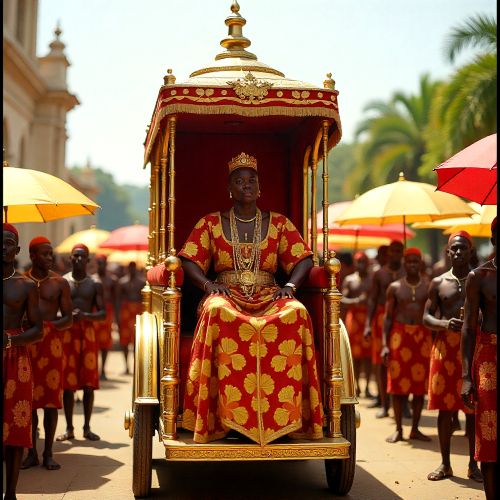Maria Tatar
Introduction
Maria Tatar is widely regarded as one of the most influential scholars of folklore and mythology in the modern era. She holds the title of John L. Loeb Professor of Germanic Languages and Literatures and serves as Chair of the Program in Folklore and Mythology at Harvard University. Over her long career, she has become the leading authority on fairy tales, offering both academic and popular audiences new ways of understanding how these stories shape cultural imagination.
Born in Pressath, Germany, in 1945 and raised in Highland Park, Illinois, Tatar built her academic path in the United States after earning her Ph.D. in German Studies at Princeton University. She joined Harvard in 1978 and has remained there ever since, mentoring generations of students and advancing the study of folklore on a global stage. Her ability to blend scholarly rigor with engaging storytelling has made her work resonate beyond university classrooms, reaching readers who are fascinated by the deep cultural meanings embedded in myths and fairy tales.
Area of Expertise
Maria Tatar’s expertise is anchored in folklore, mythology, and German literature, but her intellectual reach extends well beyond those boundaries. She is particularly known for her work on European fairy tales, with a focus on the Brothers Grimm and Hans Christian Andersen. Her studies often reveal how these tales contain layers of moral, psychological, and cultural meaning, illuminating their power to both enchant and unsettle.
Tatar has also been a major voice in children’s literature studies, exploring how stories influence childhood development and shape values. Her work investigates the interplay between innocence and darkness in narratives, showing how even frightening stories can help children navigate fear and resilience. Alongside these contributions, she has written extensively on Weimar Germany’s cultural history, especially its literary and visual culture.
Her scholarship is not confined to Europe. By examining African American folktales, global myth traditions, and the evolving role of female protagonists, she has expanded the conversation around folklore to include underrepresented voices. At Harvard, she has taught courses on German cultural studies, fairy tales, and mythology, and continues to serve on academic committees that strengthen interdisciplinary collaboration across literature, history, and folklore.
Books & Publications
Maria Tatar’s bibliography is both vast and influential. She is the author and editor of books that have redefined how fairy tales and folklore are studied.
Her 2021 work, The Heroine with 1001 Faces, challenges the dominance of Joseph Campbell’s hero’s journey by focusing on women’s roles in myths and modern storytelling. This book highlights how heroines from myth to contemporary culture reclaim agency and visibility, from ancient tales to the #MeToo movement.
Also published in 2021, The Fairest of Them All: Snow White and 21 Tales of Mothers and Daughters, explores relationships between generations of women in folklore. It includes translations and commentary that reveal how complex and varied these narratives are across cultures.
In Off with Their Heads! Fairy Tales and the Culture of Childhood, Tatar departs from psychoanalytic readings of fairy tales, arguing instead that stories should not be reduced to symbolic enactments of childhood impulses. This book insists on seeing fairy tales as cultural texts with multiple layers of meaning.
Her early landmark study, The Hard Facts of the Grimms’ Fairy Tales, first published in 1987 and later expanded in 2003, exposed the often violent and unsettling dimensions of the Grimm canon. It remains a cornerstone for students and scholars alike.
She has also produced highly praised annotated editions, including The Annotated Classic Fairy Tales, The Annotated Brothers Grimm, and The Annotated African American Folktales, co-edited with Henry Louis Gates Jr. These volumes combine translations, historical background, and critical commentary, making them accessible to both general readers and scholars.
Other important titles include Secrets beyond the Door: The Story of Bluebeard and His Wives, which examines the disturbing Bluebeard legend, and Lustmord: Sexual Murder in Weimar Germany, an exploration of gender, violence, and culture during the interwar period.
Research & Contributions
Maria Tatar’s research contributions have fundamentally reshaped how fairy tales are perceived in both academia and popular culture. She was one of the first American scholars to focus seriously on fairy tales as cultural texts, moving away from earlier views that dismissed them as trivial stories for children. By uncovering their historical origins, she demonstrated how these tales acted as mirrors of societal anxieties, hopes, and moral codes.
Her work has been especially important in highlighting the darker, often unsettling aspects of folklore. She has shown that the violence in classic tales, rather than being inappropriate for children, functions as a way to engage with fear and danger in symbolic form. This perspective opened new avenues for understanding how storytelling contributes to emotional growth.
Through her exploration of heroines and marginalized figures in folklore, Tatar has also advanced feminist interpretations of myth. Her analysis of transcreation—how stories like Cinderella evolve differently across cultures—demonstrates the adaptability and resilience of narrative traditions. By expanding the canon to include African American folktales and global voices, she has broadened folklore studies beyond the European tradition, ensuring a richer and more inclusive understanding of storytelling.
Awards & Recognitions
Maria Tatar’s achievements have been widely recognized. In 2018, she and Henry Louis Gates Jr. received the NAACP Image Award for Outstanding Literary Work of Fiction for The Annotated African American Folktales, a groundbreaking anthology that brought long-overlooked stories into the spotlight. She has also been awarded fellowships from the National Endowment for the Humanities, supporting her ongoing research and writing.
Her books have consistently earned critical acclaim, and she has held leadership positions at Harvard that reflect her standing in the academic community. While not all of her honors are publicly listed, her role as a senior fellow at the Harvard Society of Fellows and her long career as a tenured professor highlight the respect she commands in her field.
Social Media Profiles
Maria Tatar maintains a modest but meaningful online presence. On X (formerly Twitter), her handle @mariamtatar serves as a platform where she shares reflections on fairy tales, literature, and cultural issues. She often comments on the enduring relevance of folklore and occasionally posts about her personal background, including her family’s roots in Transylvania. Her following, while relatively small compared to mainstream authors, reflects a dedicated community of readers and scholars.
In addition, Tatar runs a blog titled “Breezes from Wonderland | Maria Tatar’s Forum for Storytelling,” where she writes about myth, folklore, and the cultural significance of storytelling. This space extends her academic work into a more personal, reflective format, engaging readers with topics such as expanding Joseph Campbell’s narrative structures to include heroines and exploring how domestic traditions influence storytelling.
Bibliographic Source
Tatar, M. (2008). The Annotated Hans Christian Andersen. W.W. Norton & Company.
Tatar, M. (2009). Enchanted Hunters: The Power of Stories in Childhood. W.W. Norton & Company.
Tatar, M. (2011). The Annotated Peter Pan. W.W. Norton & Company.
Gates Jr., H. L., & Tatar, M. (2017). The Annotated African American Folktales. Liveright.
Tatar, M. (2020). The Fairest of Them All: Snow White and 21 Tales of Mothers and Daughters. Harvard University Press.
Tatar, M. (2021). The Heroine with 1001 Faces. Liveright.
Wikipedia contributors. (2025). Maria Tatar. In Wikipedia. Retrieved September 22, 2025, from https://en.wikipedia.org/wiki/Maria_Tatar
Harvard University. (2025). Maria Tatar Faculty Profile. Retrieved September 22, 2025, from https://german.fas.harvard.edu/people/maria-tatar
Goodreads. (2025). Books by Maria Tatar. Retrieved September 22, 2025, from https://www.goodreads.com/author/list/15620.Maria_Tatar






